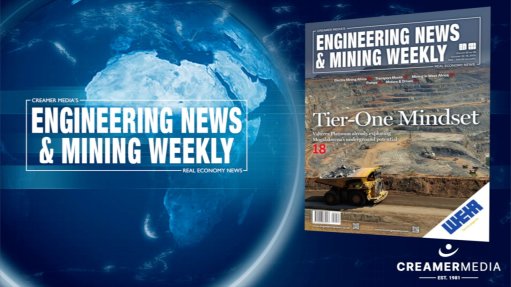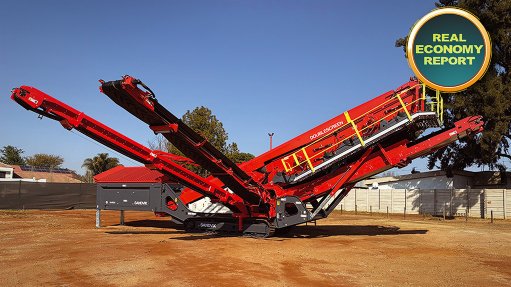Manufacturers urged to embrace technological advances to be competitive, future-ready
The future of manufacturing lies in the seamless integration of cutting-edge technologies and a steadfast commitment to sustainability.
As smart factories become more prevalent, manufacturers must continue to embrace technological advancements and integrate them into their operations to remain competitive and future-ready.
“The adoption of smart factory technology is a necessity for manufacturers aiming to achieve operational excellence. Those who fail to adapt will be left behind as the world changes around them,” says Syspro chief product engineering officer Chris Lloyd.
This includes leveraging the industrial Internet of Things and machine learning, key technologies that are enabling factories to become highly efficient production environments.
Smart sensors using QR codes, radio frequency identification tags, near-field communication chips and connected devices are enabling real-time monitoring and control of manufacturing processes, leading to reduced downtime, optimised resource use and enhanced productivity.
In the manufacturing and distribution sectors, artificial intelligence (AI) is infusing Enterprise Resource Planning (ERP) systems with unparalleled capabilities.
“Generative AI will increase these gains in business agility, further connecting dots across the organisation to identify and recommend process efficiencies and deliver new insights,” Lloyd explains.
AI and large language models, through vast data analysis, uncover efficiencies and automate routine tasks, further enhancing decision-making and operational efficiency.
“The integration of AI extends to quality control, supply chain management and product optimisation, ensuring that manufacturers can respond swiftly to market demands and maintain high standards of quality,” he says.
Lloyd further points to the use of virtual and augmented reality technologies for immersive virtual training, testing and monitoring, allowing workers to gain hands-on experience in a safe and controlled environment with no risk of interrupting production schedules owing to human trial and error.
Alongside this, digital twin technology, which creates virtual replicas of physical systems, enables manufacturers to optimise processes, predict maintenance needs and enhance overall efficiency, he adds, noting that the metaverse also facilitates remote monitoring and maintenance, reducing the need for on-site presence and associated costs.
Meanwhile, the deployment of high-speed, low-latency 5G connectivity technology is supporting the vast data needs of modern manufacturing.
It enables faster and more reliable communication between devices, facilitating real-time monitoring and adjustments in the production process, as well as remote control, as engineers can control and monitor machines from anywhere.
“This enhanced connectivity is crucial for the seamless operation of smart factories and the effective implementation of Internet of Things solutions,” Lloyd explains.
Meanwhile, there is increasing focus on sustainable practices and the efficient use of resources to minimise environmental impact.
In line with this, green manufacturing initiatives, such as reducing waste, recycling materials and using renewable energy sources, are becoming integral to manufacturing operations.
Intelligent ERP systems enable manufacturers to scrutinise their operations for opportunities to refine and improve processes to maximise efficiency and minimise waste.
ERP system data creates transparency in the product life cycle, enabling manufacturers to contribute to environmental preservation while improving their brand image and meeting the growing demand for eco-friendly products.
Amid this, there has been transformation in the ERP landscape, ushering in a new era of industry-specific solutions.
“ERP providers are forging industry-specific tools tailored precisely to the unique demands of each niche, intending to alleviate manufacturers’ pain points while augmenting productivity and efficiency.”
However, a rise in cyber threats means that manufacturers also need to focus on strengthening cybersecurity measures to protect sensitive data and ensure the continuity of operations.
The manufacturing sector has emerged as the most targeted industry for cyberattacks, surpassing even the financial services sector, owing to the lucrative nature of intellectual property stored in industrial control systems and the potential disruption that even a single day of downtime can cause.
“Manufacturers must invest in robust cybersecurity frameworks and adopt best practices to safeguard their digital assets. By doing so, they can mitigate risks and maintain the trust of their customers and partners,” Lloyd concludes.
Comments
Press Office
Announcements
What's On
Subscribe to improve your user experience...
Option 1 (equivalent of R125 a month):
Receive a weekly copy of Creamer Media's Engineering News & Mining Weekly magazine
(print copy for those in South Africa and e-magazine for those outside of South Africa)
Receive daily email newsletters
Access to full search results
Access archive of magazine back copies
Access to Projects in Progress
Access to ONE Research Report of your choice in PDF format
Option 2 (equivalent of R375 a month):
All benefits from Option 1
PLUS
Access to Creamer Media's Research Channel Africa for ALL Research Reports, in PDF format, on various industrial and mining sectors
including Electricity; Water; Energy Transition; Hydrogen; Roads, Rail and Ports; Coal; Gold; Platinum; Battery Metals; etc.
Already a subscriber?
Forgotten your password?
Receive weekly copy of Creamer Media's Engineering News & Mining Weekly magazine (print copy for those in South Africa and e-magazine for those outside of South Africa)
➕
Recieve daily email newsletters
➕
Access to full search results
➕
Access archive of magazine back copies
➕
Access to Projects in Progress
➕
Access to ONE Research Report of your choice in PDF format
RESEARCH CHANNEL AFRICA
R4500 (equivalent of R375 a month)
SUBSCRIBEAll benefits from Option 1
➕
Access to Creamer Media's Research Channel Africa for ALL Research Reports on various industrial and mining sectors, in PDF format, including on:
Electricity
➕
Water
➕
Energy Transition
➕
Hydrogen
➕
Roads, Rail and Ports
➕
Coal
➕
Gold
➕
Platinum
➕
Battery Metals
➕
etc.
Receive all benefits from Option 1 or Option 2 delivered to numerous people at your company
➕
Multiple User names and Passwords for simultaneous log-ins
➕
Intranet integration access to all in your organisation


















